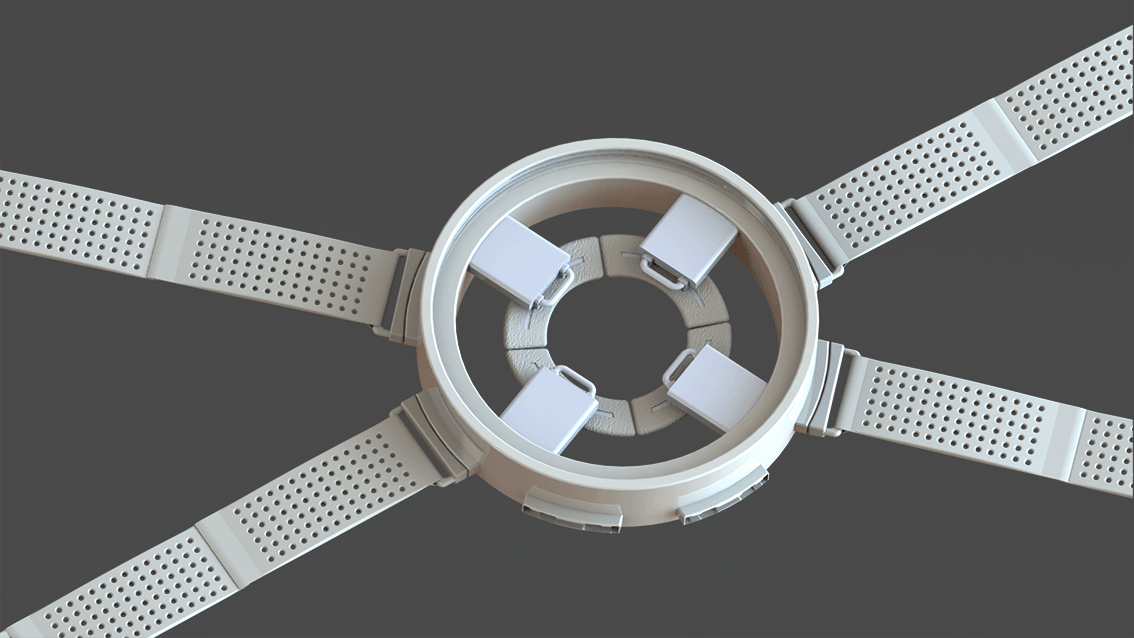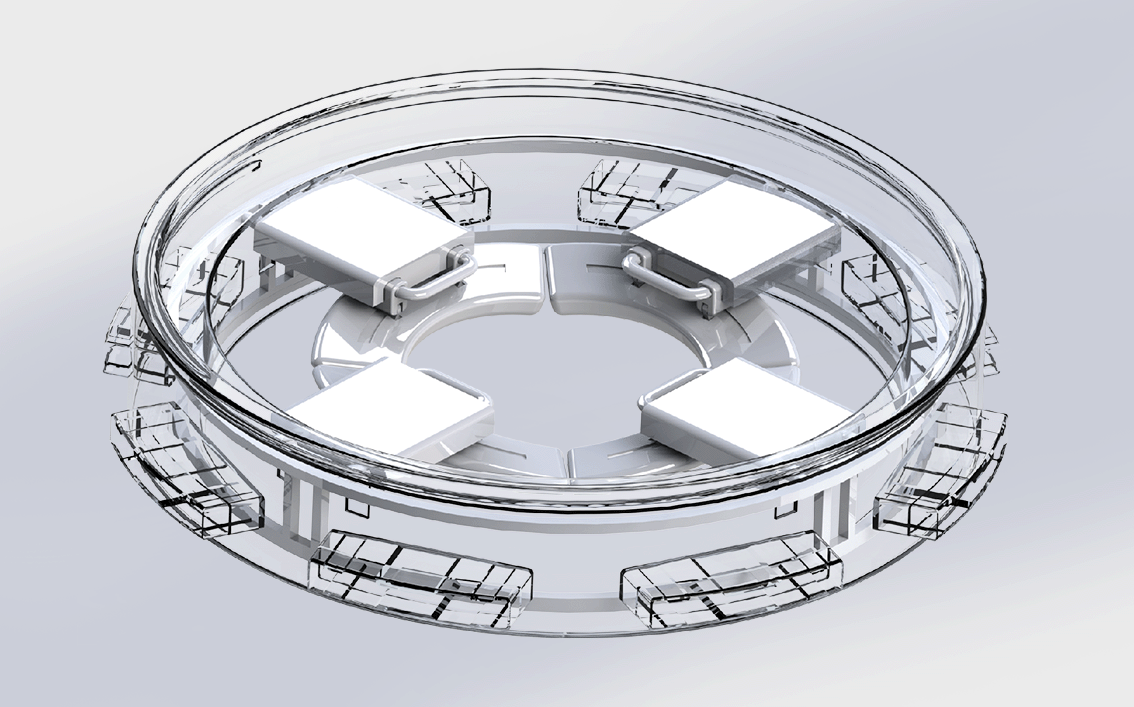It was an interdisciplinary project led by the Biomechanics team at the faculty of Medical Engineering. MCROBOT (MRI compatible Robot) is a surgeon robot via remote control by surgeon physician during MRI imaging, being efficient in biopsy, recognition, and treatment. All these are done through inserting a needle, catheter, probe, etc., into a limited incision on the skin or anatomical opening, while indirect observation of the surgical field (in MRI machine).
The process I have done during the project contains the following items:
Research Phase:
1) Analyzing its Usage algorithm, investigating the performance of MCROBOT, and learning its mechanism designed by the bio-mechanics team
2) Using Evidence-Based Design (EBD) for defining the robot's specifications and solving problems during the design process, which encompassed a wide range of research, including original researches - case studies - literature reviews - laboratories and companies' similar experiments - investigating practice guidelines about MRI environment and specific features of its equipment - seeking expert opinions
3) Analyzing the robot interaction from both patient and physician perspectives to achieve a design based on the User-Centred approach by considering ergonomics and human factors.
Design Phase:
4) Defining a new usage algorithm for MCROBOT to increase the robot efficiency and improve the user experience (operator and patient)
5) Dividing the body of the robot into two parts: Robot's main mechanism & Robot's installation system
5) Considering three main parts for installation system: to achieve better control by operator / to be fixed with every patient with every skin's elasticity and every size / to operating more precisely / less invasion on patient body / to settle the robot on every place of the patient body.
A) The main installation Mechanism: Four quarters of a circle for stretching the skin, preparing the initial incision to insert the needle into the patient's body.
B) MCROBOT's outer body with multi-place for connecting three or more straps in different angles based on the body's situation on the MRI bed and patient's body form and curves in the operating area.
C) Adjustable or modular straps to connect the robot to the patient's body
This page includes the below contents:
1) Initial Introduction Video: Robot's main mechanism and process of the design based on the client's presumption of their robot
2) Design Based on the Client's Plan Video: Analysing the client's presumption usage algorithm and the problems that it can cause during the surgery process
3) User Center Concepts' Video: Initial concept design based on previous research and analyses
4) New Usage Algorithm Video
5) New Installation Mechanism
The design process was done under the supervision of Dr Foad S. Farimani, Dr Vahid Choopankareh & Dr Jamshid Emami.
MRI Compatible Robot (MCROBOT)
Biomedical-Engineering Faculty of Tehran Polytechnic University (Amirkabir University of Technology)
Industrial Design Project N.1 (Master degree) 2009
1- Initial Introduction:
2- Design Based on Client's plan:
3- User Centre Concepts:
4- New Usage Algorithm:


